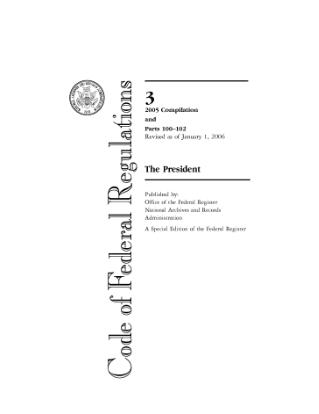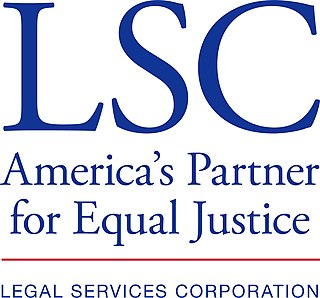Related Research Articles
The Federal Aviation Regulations (FARs) are rules prescribed by the Federal Aviation Administration (FAA) governing all aviation activities in the United States. The FARs comprise Title 14 of the Code of Federal Regulations. A wide variety of activities are regulated, such as aircraft design and maintenance, typical airline flights, pilot training activities, hot-air ballooning, lighter-than-air aircraft, human-made structure heights, obstruction lighting and marking, model rocket launches, commercial space operations, model aircraft operations, Unmanned Aircraft Systems (UAS) and kite flying. The rules are designed to promote safe aviation, protecting pilots, flight attendants, passengers and the general public from unnecessary risk.

In the law of the United States, the Code of Federal Regulations (CFR) is the codification of the general and permanent regulations promulgated by the executive departments and agencies of the federal government of the United States. The CFR is divided into 50 titles that represent broad areas subject to federal regulation.

The Federal Register is the official journal of the federal government of the United States that contains government agency rules, proposed rules, and public notices. It is published every weekday, except on federal holidays. The final rules promulgated by a federal agency and published in the Federal Register are ultimately reorganized by topic or subject matter and codified in the Code of Federal Regulations (CFR), which is updated quarterly.

The Legal Services Corporation (LSC) is a publicly funded, 501(c)(3) non-profit corporation established by the United States Congress. It seeks to ensure equal access to justice under the law for all Americans by providing funding for civil legal aid to those who otherwise would be unable to afford it. The LSC was created in 1974 with bipartisan congressional sponsorship and the support of the Nixon administration, and LSC is funded through the congressional appropriations process.

The Federal Maritime Commission (FMC) is an independent agency of the United States government that regulates U.S. oceanborne transportation and the United States Merchant Marine. It is chaired by Daniel B. Maffei.
The Common Rule is a 1991 rule of ethics in the United States regarding biomedical and behavioral research involving human subjects. A significant revision became effective July 2018. It governed Institutional Review Boards for oversight of human research and followed the 1975 revision of the Declaration of Helsinki; it is encapsulated in the 1991 revision to the U.S. Department of Health and Human Services Title 45 CFR 46 Subparts A, B, C and D. Subpart A. The Common Rule is the baseline standard of ethics by which any government-funded research in the US is held; nearly all U.S. academic institutions hold their researchers to these statements of rights regardless of funding.

The Clean Air Act (CAA) is the United States' primary federal air quality law, intended to reduce and control air pollution nationwide. Initially enacted in 1963 and amended many times since, it is one of the United States' first and most influential modern environmental laws.
Title 1 of the Code of Federal Regulations, titled General Provisions, is a United States federal government regulation.
CFR Title 50 - Wildlife and Fisheries is one of fifty titles comprising the United States Code of Federal Regulations (CFR). Title 50 is the principal set of rules and regulations issued by federal agencies of the United States regarding wildlife and fisheries. Maintained by the Office of the Federal Register, it is available in digital and printed form, and can be referenced online the Electronic Code of Federal Regulations (e-CFR).
CFR Title 49 - Transportation is one of fifty titles comprising the United States Code of Federal Regulations (CFR). Title 49 is the principal set of rules and regulations issued by the Departments of Transportation and Homeland Security, federal agencies of the United States regarding transportation and transportation-related security. This title is available in digital and printed form, and can be referenced online using the Electronic Code of Federal Regulations (e-CFR).
CFR Title 43 - Public Lands: Interior is one of fifty titles comprising the United States Code of Federal Regulations (CFR). Title 43 is the principal set of rules and regulations issued by federal agencies of the United States regarding public lands under the jurisdiction of the Department of the Interior. It is available in digital and printed form, and can be referenced online using the Electronic Code of Federal Regulations (e-CFR).
CFR Title 42 - Public Health is one of fifty titles comprising the United States Code of Federal Regulations (CFR). Title 42 is the principal set of rules and regulations issued by federal agencies of the United States regarding public health, including respirator rules and regulations moved from CFR Title 30, to the Public Health Service.
CFR Title 3 – The President is one of 50 titles composing the United States Code of Federal Regulations (CFR) and contains the principal set of rules and regulations issued by federal agencies regarding the Executive Office of the President of the United States. It is available in digital and printed form and can be referenced online using the Electronic Code of Federal Regulations (e-CFR).
CFR Title 22 – Foreign Relations is one of fifty titles comprising the United States Code of Federal Regulations (CFR), containing the principal set of rules and regulations issued by federal agencies regarding foreign relations. It is available in digital and printed form, and can be referenced online using the Electronic Code of Federal Regulations (e-CFR).
CFR Title 36 - Parks, Forests, and Public Property is one of fifty titles comprising the United States Code of Federal Regulations (CFR). Title 36 is the principal set of rules and regulations issued by federal agencies of the United States regarding parks, forests, and public property. It is available in digital and printed form, and can be referenced online using the Electronic Code of Federal Regulations (e-CFR).
CFR Title 34 - Education is one of fifty titles comprising the United States Code of Federal Regulations (CFR). Title 34 is the principal set of rules and regulations issued by federal agencies of the United States regarding education. It is available in digital and printed form, and can be referenced online using the Electronic Code of Federal Regulations (e-CFR).
CFR Title 32 – National Defense is one of 50 titles composing the United States Code of Federal Regulations (CFR). Title 32 is the principal set of rules and regulations issued by federal agencies of the United States regarding national defense. It is available in digital and printed form and can be referenced online using the Electronic Code of Federal Regulations (e-CFR).
CFR Title 30 - Mineral Resources is one of fifty titles comprising the United States Code of Federal Regulations (CFR), containing the principal set of rules and regulations issued by federal agencies regarding national mineral resources. It is available in digital and printed form, and can be referenced online using the Electronic Code of Federal Regulations (e-CFR).
CFR Title 29 - Labor is one of fifty titles comprising the United States Code of Federal Regulations (CFR), containing the principal set of rules and regulations issued by federal agencies regarding labor. It is available in digital and printed form, and can be referenced online using the Electronic Code of Federal Regulations (e-CFR).
CFR Title 9 – Animals and Animal Products is one of 50 titles composing the United States Code of Federal Regulations (CFR) and contains the principal set of rules and regulations issued by federal agencies regarding animals and animal products. It is available in digital and printed form and can be referenced online using the Electronic Code of Federal Regulations (e-CFR).
References
- ↑ "Federal Register :: Request Access". www.ecfr.gov. Retrieved 20 February 2014.